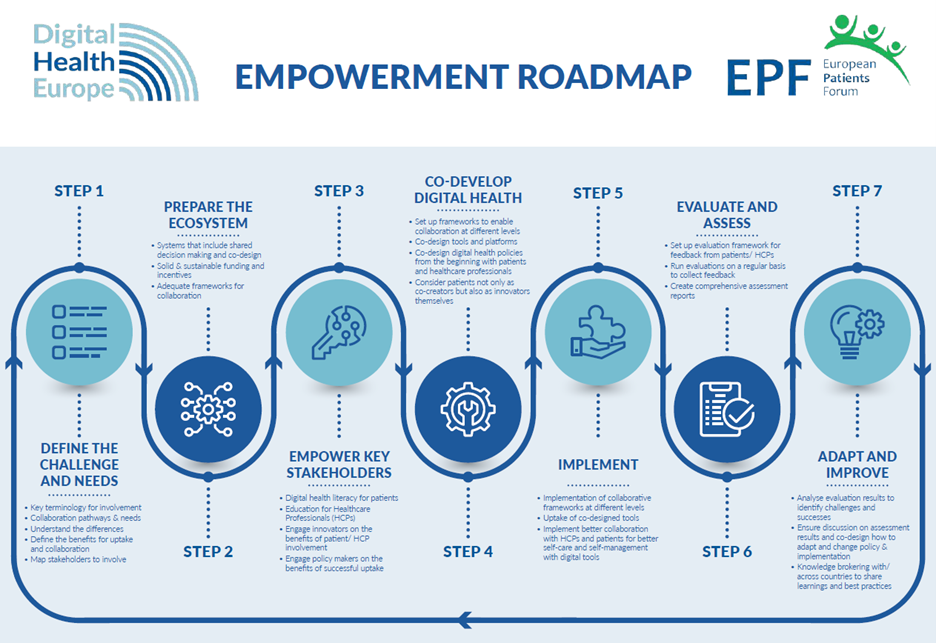Last update: 12 December 2023
Traditionally, health data has been generated by documenting patients’ records (i.e. clinicians’ notes, lab results, prescriptions etc.) in a paper-based system. However, this system has several challenges such as limited search capacity and slow access to the required data. In contrast, digital recording can facilitate and accelerate the interoperability of different services within the health care sector, for instance like e-prescription or discharged processes from a hospital. The popularity of technologies such as smartphone applications, smart watches, movement trackers, etc., has contributed to the increase in recorded digital health data.
The Role of Patients & Caregivers
Patients’ expectations from a healthcare system have evolved due to technological and social changes in recent years. Patients expect to be more involved in the decision-making process for their health and well-being. Following this expectation, healthcare organisations and policymakers are moving toward a more patient-centred healthcare system. Active engagement of patients is key to implement this transformation.
Digital Health supports a transition from traditional approaches to more modern medicine. One of the fundamental promises of digital health to patients is the ‘quantification’ of many aspects of care and the production of “Health Data”. Digital technologies can contextualise the patients’ health data and help them participate in the clinical decision-making process. Caregivers’ role in supporting patients is also essential. Depending on the digital health class, the impact’s size may be varied and can be supportive, motivational, or informative [2].

Figure: Patient empowerment roadmap [1]
The Role of Healthcare Professionals (HCPs)
Digital health technologies can help to advance a new doctor-patient relationship, and all HCPs are exposed to various digital tools. Depending on the national and regional healthcare structure, various tools will be employed by HCPs. By using these tools, HCPs have the benefit of double-checking the diagnosis, the offered treatment plan can be personalised, and the real-time patient feedback can be provided, enabling HCPs to monitor the patient’s health conditions and the effect of treatment.
Learning Resources
Take your skills to new heights by earning certification in emerging fields like Digital Health! Explore the EUPATI Open Classroom and delve into the modules Digital Health: Introduction – Classification – Impact & Digital Health Transformation and challenges to deepen your understanding of the Digital Health landscape. Strengthen your expertise, empowering you to advocate for, engage in discussions, and play a pivotal role in implementing key elements that align with your vision for the healthcare system.
References
[1] Digital Health Europe. PATIENT EMPOWERMENT ROADMAP. Accessed June 1, 2022. https://digitalhealtheurope.eu/catalogue/?_sfm_country=EU
[2] Meskó B, Drobni Z, Bényei É, Gergely B, Győrffy Z. Digital health is a cultural transformation of traditional healthcare. Mhealth. 2017;3:38-38. doi:10.21037/MHEALTH.2017.08.07


